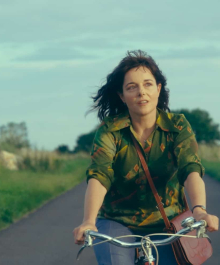
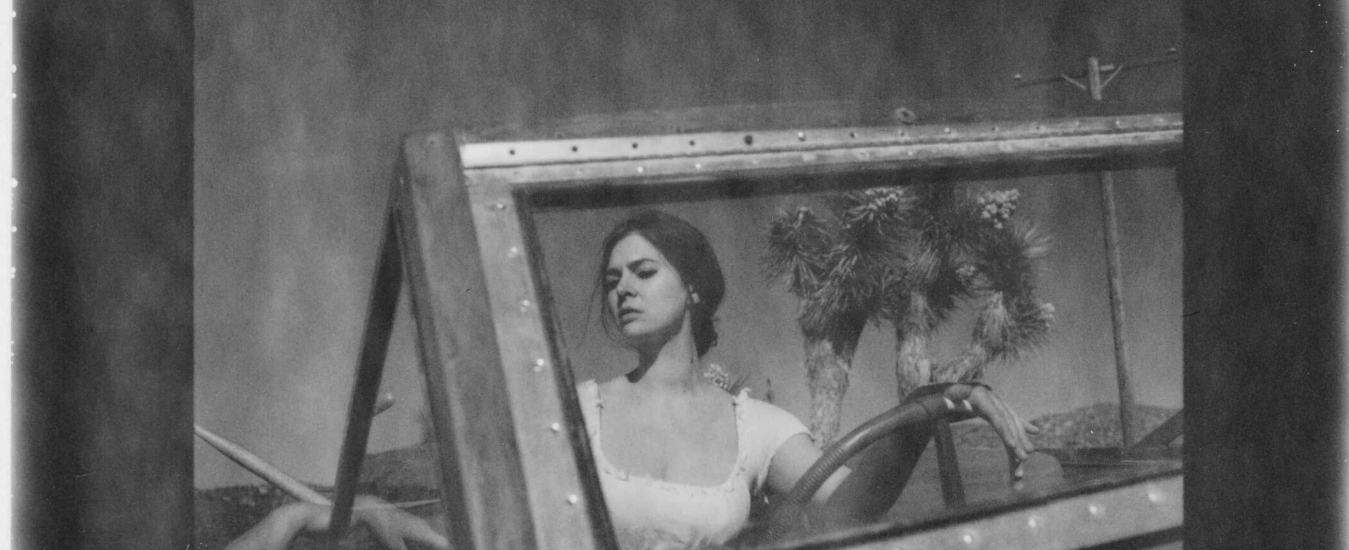
Vera Sola at Monarch: “What it means to haunt and be haunted.”
By Allison Krupp . April 15, 2019
Vera Sola’s haunting lyricism and dark nostalgia at Monarch on April 16, 2019.
Vera Sola’s recently released “Shades,” which was written, performed, and produced entirely alone, lends itself to drama, evoking the likes of Morricone and Leonard Cohen and Nick Cave. It’s imagistic in nature. Think: long shadows appearing around corners, sharp glances across rooms that reveal innermost secrets. It’s layered and cutting and demands a second listen, and then another. And frankly, if this sort of persona lurks behind the album – I’m not sure how any of us can avoid Monarch on Tuesday.
The album begins with a tentative yearning, before growing sinister, aching, almost angry – utilizing impactful, poetic language that could have only fallen from the head of Harvard-lit-grad American/Canadian poet, vocalist, and multi-instrumentalist herself, Danielle Aykroyd. She starts telling us the weight of her power – “I want to hurt you, but I won’t.” But we’re frankly unsure, unsure of the lengths she’ll go dangling that power over us, before lashing us in two (tethers you up in “The Cage,” and then rips you to shreds in “New Nights”).

BLY: You studied as a poet. What would you say is the difference between poetry and music? Is the derived emotion in any way different? Would you say one is a purer “art form” than the other?
That’s a very hard question; there is musical poetry and poetic music. I think we’d have to have a long discussion about semantics to deem one or the other a purer art form—but I’d say no.
They have many similarities and, for the kind of music I make at least, obviously go hand in hand.
However, a great poem doesn’t necessarily make a great song. And great lyrics aren’t necessarily great poetry. It comes down to the presentation, I think.
I love poetry, reading and writing it. But for me music is more fulfilling to make at this moment.
BLY: Which poets do you read most often? Have any recommendations for our readers or any quotes that you continually return to?
I jump around a lot, but I tend to like florid language. I find myself most often returning to lines and phrases by Dylan Thomas, T.S. Eliot. The 77 Dream Songs by John Berryman are very important to me. And Edna St. Vincent Millay recently as well. I try to memorize as much of that stuff as I can, just to have it in me at all times. But I do that less and less now that I have a cell phone. I’m a lot dumber now. Anyway, I’ve been thinking a lot over the past year of a line from the poem ‘the Three Oddest Words’ by Wislawa Szymborska: “When I pronounce the word silence, I destroy it.”
BLY: Your album seems to dance between heart-aching western tunes and dark, eerie, angry tracks. How did you merge these two starkly different emotions into a single album?
There wasn’t any intention for what the album would be when I made it, nothing other than a sort of channeling. I had no genre in mind and just let flow out whatever music came through me. The songs are written and sung from the perspectives of different characters, though, which probably accounts for the disparity you note in the emotions.
BLY: What would you say is the central theme of this album?
What it means to haunt and be haunted. Not necessarily by ghosts—but by emotions, memories, relationships of the past and present, collective conscience and societal construct.
BLY: Your album is incredibly cinematic, imagistic. Do you find yourself having any sort of film influence as you write/record?
It’s all one to me. There are definitely images in mind. In many ways music is visual for me, it’s laid out in a sort of dome around my body that I see and feel when I’m writing and arranging. I’m inspired by most everything in general, from classic films to reality TV. But I definitely have a love of noir films, and especially German expressionism. Fritz Lang has always been very present in my aesthetic world.
BLY: Are you writing as you tour? Has the travel influenced your work at all? Would you say there’s a big difference between touring through Europe versus North America?
I’m always writing. Mostly words on my phone in the notes or melodies badly sung into the voice memos. I’d like to—and need to—actually flesh out more full songs on the road. That’s a goal.
Travel definitely influences because of the people I meet and stories I hear. I pick up music and language from all over the place. And as for touring in Europe, I love it. I think there’s more willingness to discover new music over here. As a new artist, I’m grateful for that.
BLY: What can our readers expect from the live show?
The show is very dynamic. Some of the arrangements are similar to the record, some very different. A lot of new songs too. We cover a vast span of genres, the full spectrum of emotion. Sadness, anger, joy. There’s a lot of humor too; and dancing. If there’s one overarching thing to be said, and I say this with sincere humility, it’s that you’ve never seen or heard anything quite like it. Take that as a challenge—come to the show and tell me if I’m wrong!
See you at this unmissable gig. Buy tickets here.
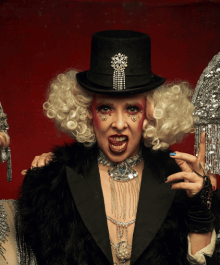

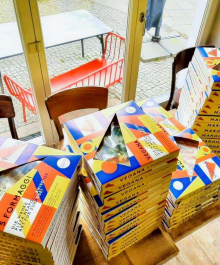
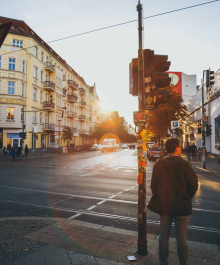



Vera Sola is legendary